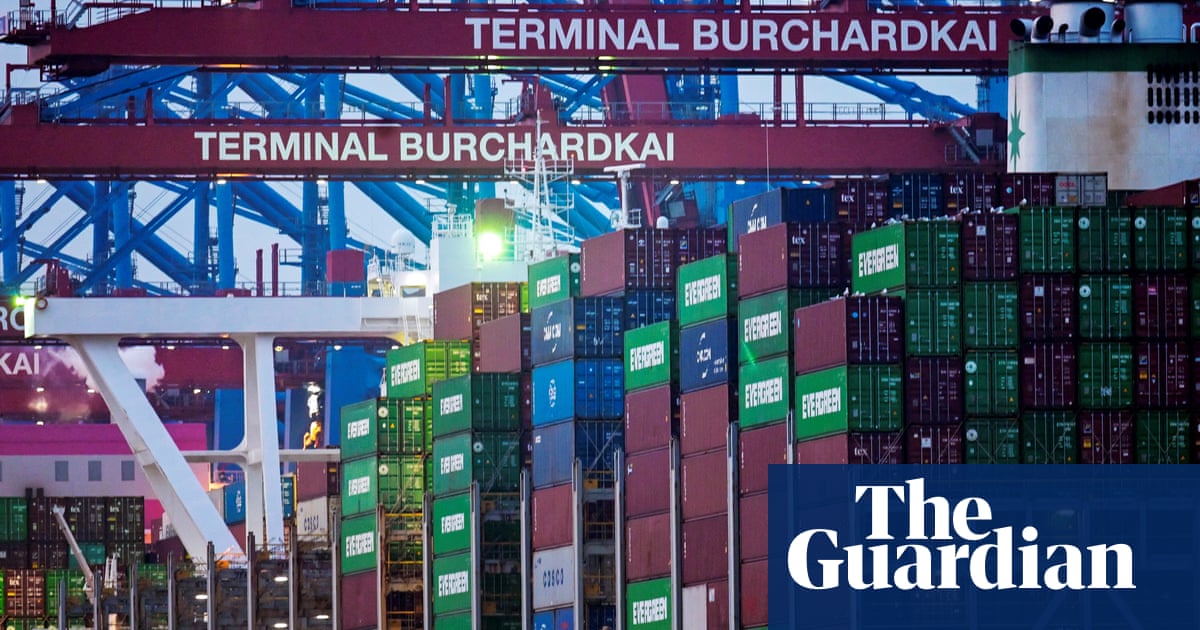Rising Tensions: Germany’s Call for Dialogue Amid U.S. Tariff Threats
Germany’s finance minister is adding his voice to a growing chorus of European leaders advocating for renewed discussions with the United States. This follows President Donald Trump’s recent announcement of a potential imposition of 50% tariffs on imports from Europe, a move that has sparked considerable anxiety in both the EU and global markets.
Trump’s Stance: Unyielding and Provocative
On Friday, Trump expressed frustration over the lack of meaningful negotiations with the European Union, declaring that discussions "are going nowhere." He emphasized that he was not pursuing a deal and reiterated a long-held belief that European nations have conspired to take advantage of the U.S. economy. By threatening to raise tariffs from the existing 10% to a staggering 50%, Trump has escalated tensions between two of the world’s largest economic powers.
Germany’s Response: A Call for Serious Negotiations
In the wake of Trump’s provocative declaration, German finance minister Lars Klingbeil responded emphatically. He articulated the need for “serious negotiations” rather than “further provocations,” urging a collaborative approach to resolve the brewing economic conflict. Klingbeil revealed that he had discussed the matter directly with his U.S. counterpart, Scott Bessent, emphasizing that such tariffs could harm not only European economies but the U.S. economy as well.
Potential Economic Impact: A Broader Perspective
The proposed tariffs have raised alarms across global stock markets, with a palpable sense of unease permeating financial circles. Investors reacted swiftly, sending U.S. dollar values tumbling. The economic implications of these tariffs are dire, potentially destabilizing markets and causing widespread disruption. The EU stands as one of the U.S.’s largest trading partners, with trade volumes reaching over $600 billion in goods shipped from Europe and approximately $370 billion in U.S. imports.
A Unified European Front
Klingbeil conveyed solidarity with the EU’s stance in addressing these tariffs, stating, "We as Europeans are united and determined to represent our interests." This position underscores a broader consensus within the EU that cooperation and dialogue are essential for navigating these troubled waters.
EU Trade Chief’s Rhetoric: A Balanced Approach
Maroš Šefčovič, the EU’s trade chief, echoed Klingbeil’s sentiments, stressing the importance of mutual respect in trade relations. His assertion that the bloc is committed to securing a balanced deal underscores a desire to mitigate the tensions exacerbated by Trump’s rhetoric. The aim is to foster a partnership beneficial to both parties, rather than one that relies on threats and punitive measures.
Concerns from Various Quarters
The potential ramifications of such steep tariffs have raised eyebrows across Europe. Irish Premier Micheál Martin voiced concerns, stating that the sudden shift in U.S. policy was unexpected, especially after a previous commitment to delay tariff increases until July. Martin reiterated that the EU, collectively, seeks a negotiated settlement that benefits all parties involved, emphasizing the significant scale and dynamism of U.S.-EU trade relations.
The Stakes: Global Economic Disruption
The prospect of imposing tariffs of this magnitude is alarming not only for European nations but for the global economy at large. Martin pointed out that such drastic measures would inevitably create “wider disruption” beyond Europe and the U.S. Hence, the importance of establishing a fair and constructive dialogue becomes increasingly urgent as the stakes continue to rise.
As these leaders navigate this fraught economic landscape, the call for serious negotiations over contentious tariffs serves as a reminder of the delicate balance that underpins international trade relationships.


